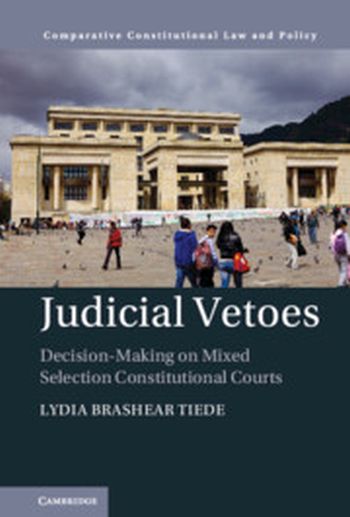
How does the selection of judges influence the work they do in important constitutional courts? Does mixed judicial selection, which allows more players to choose judges, result in a court that is more independent and one that can check powerful executives and legislators? Existing literature on constitutional courts tends to focus on how judicial behaviour is motivated by judges' political preferences. Lydia Brashear Tiede argues for a new approach, showing that, under mixed selection, institutions choose different types of judges who represent different approaches to constitutional adjudication and thus have different propensities for striking down laws. Using empirical evidence from the constitutional courts of Chile and Colombia, this book develops a framework for understanding the factors, external and internal to courts, which lead individual judges, as well as the courts in which they work, to veto a law.